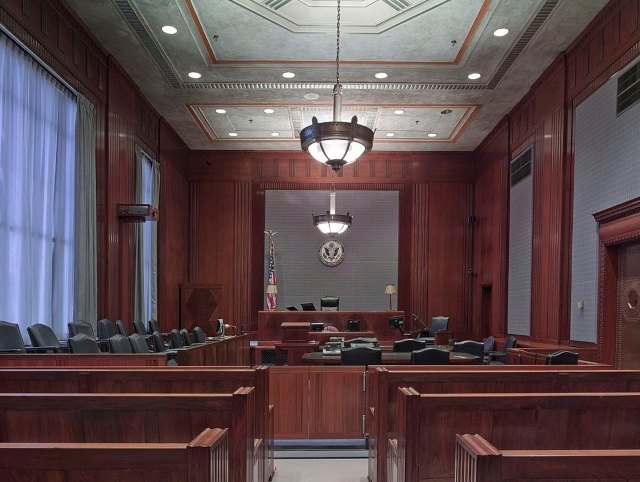Recognizing the Duty of a Post-Conviction Lawyer in Looking For Justice After a Criminal Conviction
In the complicated landscape of post-conviction lawful process, the role of a post-conviction legal representative is essential in browsing the path to justice after a criminal sentence. Beyond the confines of a trial, these lawyers engage in a diverse technique focused on discovering new proof, tough legal errors, and advocating for their customers' rights. The ins and outs of post-conviction work call for a mix of lawful acumen, investigative skills, and critical believing to untangle the intricacies of a case and seek methods that might have been neglected or underexplored. As the pursuit of justice expands beyond the confines of initial proceedings, the role of a post-conviction lawyer becomes a beacon of hope for those seeking to correct oppressions and redeem their civil liberties within the lawful system.
Post-Conviction Legal representative's Investigatory Work
Post-conviction attorneys engage in thorough investigatory job to reveal new evidence, procedural errors, or misbehavior that might possibly result in rescinding a sentence. This investigative stage is vital in the post-conviction procedure as it intends to identify any type of ignored information or legal bad moves that might have affected the outcome of the preliminary trial. Post-conviction lawyers explore situation data, witness statements, and legal documentation with a fine-tooth comb, looking for any disparities or irregularities that can be premises for appeal.
With extensive investigation, post-conviction attorneys intend to clarify prospective injustices that may have taken place during the original test. They might perform meetings, seek advice from with specialists, and testimonial forensic evidence to develop an engaging case for their clients. By inspecting every aspect of the lawful procedures, post-conviction attorneys function tirelessly to reveal any kind of elements that might have affected the judgment. Ultimately, their investigatory work plays an essential role in the quest of justice and the potential turnaround of wrongful convictions.
Crafting Appeals and Petitions
In the quest of justice after a conviction, experienced lawyers carefully craft allures and petitions to existing engaging disagreements for the reconsideration of legal choices. Crafting appeals and applications needs a deep understanding of the lawful system, interest to information, and calculated reasoning. Post-conviction attorneys examine test documents, identify potential mistakes or infractions of legal rights, and establish lawful debates to test the conviction or sentence.
When crafting a charm, legal representatives concentrate on highlighting lawful mistakes that might have influenced the result of the case. They look into situation regulation, laws, and legal precedents to sustain their arguments. Petitions, on the various other hand, might entail offering brand-new proof that was not readily available throughout the trial or demonstrating adjustments in the legislation that call for a review of the conviction.
Moreover, post-conviction legal representatives have to follow rigorous procedural policies and target dates when filing appeals and requests. They should provide their disagreements plainly and persuasively to encourage the court to grant relief to their clients. Via meticulous crafting of appeals and requests, post-conviction attorneys make every effort to safeguard justice for individuals that have been wrongfully founded guilty or unfairly punished.

Going After Post-Conviction Relief
Looking for alleviation after a sentence calls for a strategic and attentive technique by seasoned attorneys. Post-conviction relief includes a series of legal systems made to challenge the legitimacy of a sentence or sentence (federal habeas corpus north dakota). These avenues consist of filing activities for a new test, going after charms, seeking writs of habeas corpus, and presenting newly discovered evidence. Post-conviction lawyers play a vital function in browsing these complex procedures, making certain that all lawful options are discovered to correct injustices that may have happened throughout the test or sentencing phase.
One usual form of post-conviction relief is submitting an application for post-conviction relief, commonly based on cases of inefficient assistance of guidance, prosecutorial transgression, freshly discovered evidence, or constitutional violations. Experienced post-conviction legal representatives possess the skills and knowledge needed to determine practical lawful insurance claims, conduct investigations, and existing engaging arguments to secure relief for their customers.
Utilizing Forensic Evidence
When testing a conviction or sentence, the calculated application of forensic evidence can be a powerful tool in post-conviction legal proceedings. Forensic proof incorporates a vast array of scientific methods made use of to investigate criminal activities and develop realities in court. Post-conviction attorneys can leverage forensic proof to challenge the legitimacy of convictions by presenting new scientific searchings for that were not readily available during the original test.

Taking Part In Sentence Alterations
Post-conviction legal representatives may check out the possibility of sentence alterations as a legal opportunity to attend to disproportionate or unjustified sentences handed down in criminal cases. Sentence adjustments include seeking adjustments to the regards to a defendant's sentence after a sentence has taken location. These modifications can include lowering the size of a sentence, modifying the kind of punishment imposed, or discovering alternate sentencing options.
Post-conviction legal representatives can pursue sentence adjustments with various lawful systems, such as submitting movements for sentence reduction, appealing for caring launch, or discussing appeal offers for minimized sentences. They should very carefully evaluate the scenarios of the case, assess the lawful grounds for seeking a modification, and existing compelling debates to the court sustaining the requirement for a revised sentence.
Taking part in sentence adjustments needs a comprehensive understanding of criminal regulation, sentencing standards, and the specific procedures associated with looking for post-conviction alleviation. Post-conviction lawyers play a critical duty in advocating for fair and just outcomes by difficult sentences that are unduly extreme or do not straighten with the concepts of justice.
Conclusion
To conclude, the function of a post-conviction legal representative is crucial in seeking justice after a criminal conviction. Through investigative work, crafting appeals and petitions, seeking post-conviction alleviation, utilizing forensic proof, and engaging in sentence adjustments, these legal professionals play a vital function in supporting for their customers and making sure that their legal rights are upheld within the criminal justice system. Their devotion and proficiency are vital in browsing the intricacies of post-conviction process and accomplishing a reasonable outcome for individuals facing criminal convictions.
Comments on “Lawyer's Role in Declaring a Habeas Corpus Application Explained”